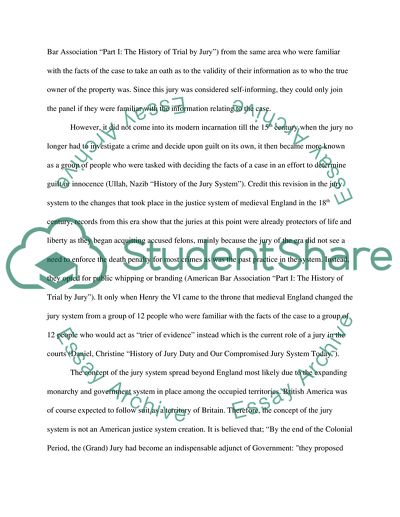Cite this document
(History of the Jury System Research Paper Example | Topics and Well Written Essays - 1250 words, n.d.)
History of the Jury System Research Paper Example | Topics and Well Written Essays - 1250 words. Retrieved from https://studentshare.org/law/1812758-history-of-the-jury-system
History of the Jury System Research Paper Example | Topics and Well Written Essays - 1250 words. Retrieved from https://studentshare.org/law/1812758-history-of-the-jury-system
(History of the Jury System Research Paper Example | Topics and Well Written Essays - 1250 Words)
History of the Jury System Research Paper Example | Topics and Well Written Essays - 1250 Words. https://studentshare.org/law/1812758-history-of-the-jury-system.
History of the Jury System Research Paper Example | Topics and Well Written Essays - 1250 Words. https://studentshare.org/law/1812758-history-of-the-jury-system.
“History of the Jury System Research Paper Example | Topics and Well Written Essays - 1250 Words”, n.d. https://studentshare.org/law/1812758-history-of-the-jury-system.


